Australia recession: As our economy boomed, standards of living fell
For 30 years, Australia’s economy has been the envy of the world – but this has come at an extremely high price for the average Aussie.
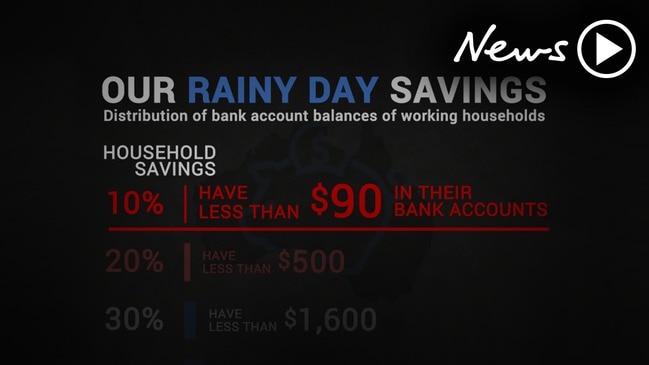
Business
Don't miss out on the headlines from Business. Followed categories will be added to My News.
Australia’s economy was incredible. We were the world’s economic hero as we notched up a record three decades of uninterrupted economic growth.
It made us the glowing poster-child for how to run a country and officials from the International Monetary Fund (IMF) drooled all over us.
But now it is over.
A recession is here and our economy is shrinking. It’s the perfect time to ask the following questions:
• What have we got to show for all that growth?
• Was it worth it?
• Would we do it all the same next time?
We are certainly a lot richer as a country, as the next graph shows. Nobody disputes that.
Over $2 trillion worth of economic activity flowed through our wide brown land in the last year, far more than back in 1990, when we were on the brink of our last recession.
RELATED: How to survive Aussie recession
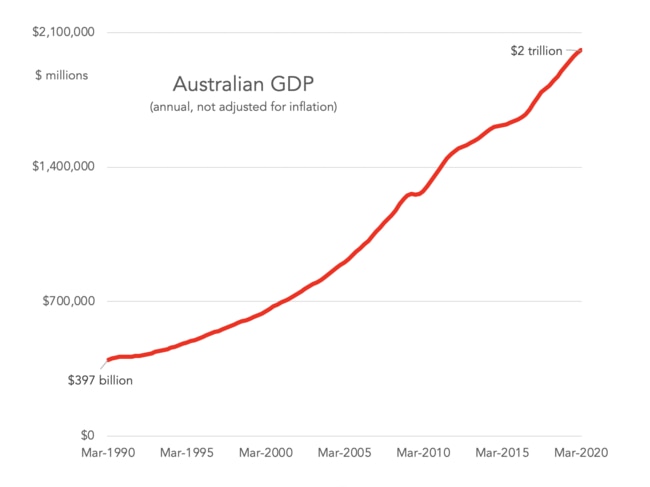
But GDP is abstract. What do we actually have that’s different?
Well, we earn a lot more money. As the next graph shows, the average man is making 2.3 times as much money as in 1994, and the average woman is making 2.4 times as much.
RELATED: Graph shows Aussie sectors ‘bleeding out’
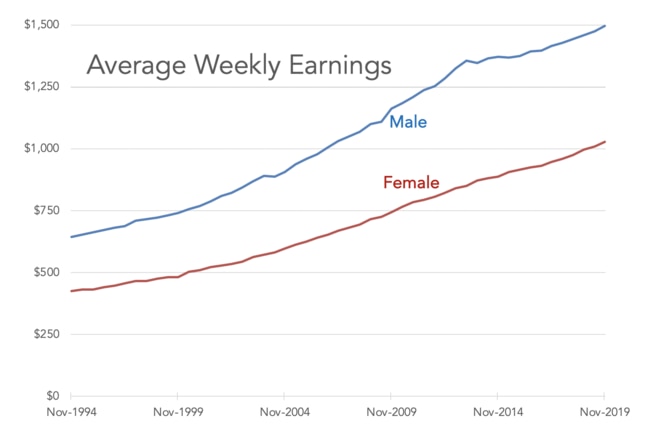
What are we spending it on? The answer is mostly our houses, and things to put in them.
In the 1990s, around the times of our last recession, Australians used to spend more on food than housing.
Now, the situation is reversed. Is that good? Only to the extent that our houses are actually nicer than they were in 1990.
The biggest growth area for spending since the last recession has been in household goods. Gadgets, kitchen appliances, furniture, electronics, rugs, etc.
The houses cost a lot more these days and they’re also a lot more comfy than they were in 1990. That’s surely a true benefit for our standard of living.
The second biggest growth area has been education. Australians are spending much more of their own money on education.
Health spending is also up, which is to be expected. That shows up in the stats – life expectancy has risen from 77 to 83 since the early 1990s.
We have been steadily getting richer as a country. But it is important to be clear about what that means.
Not every Australian has been getting richer all this time. A lot of Australia’s growth came from getting bigger.
That is the other major difference compared to the 1990s – Australia’s population. As the next chart shows, we’ve boosted the population by 50 per cent since then.
RELATED: RBA’s bleak prediction for Aussie jobs
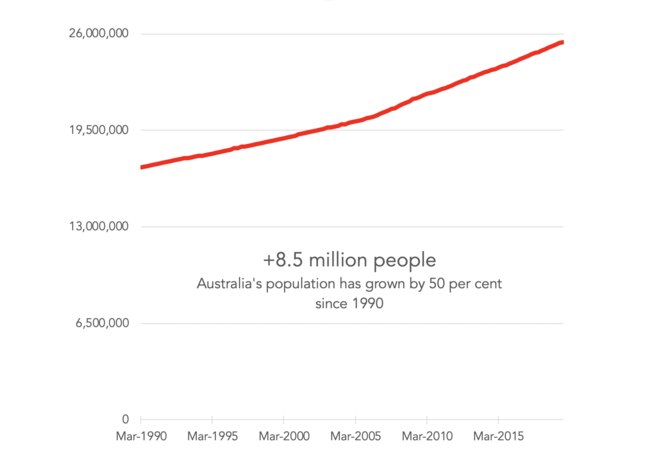
That’s a lot of new friends we can make, but also a lot more traffic on the roads.
Population growth is good, but if we don’t provide the infrastructure to accommodate it, it can be painful too.
There are signs that Australia’s economic growth has not been perfect.
For one thing, we’ve been knocked off our perch at the top of the Human Development Index. As the next chart shows, we now have several rivals for best lifestyle and human wellbeing in the world.
RELATED: Graph points to ‘unprecedented’ collapse
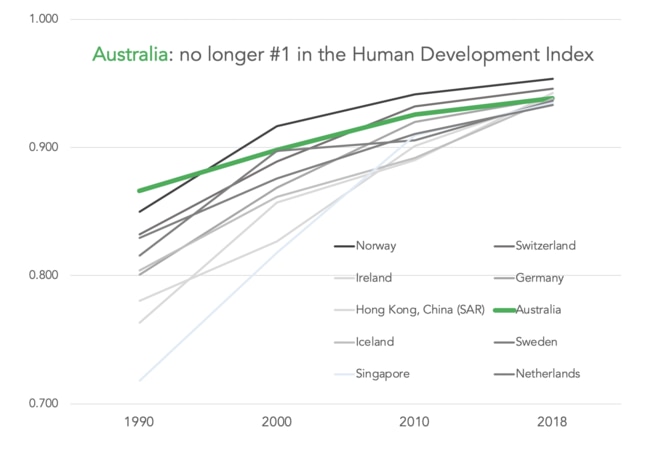
Those Norwegians in particular are beating us, despite having a recession during the Global Financial Crisis, while we dodged one.
It goes to show – being recession-free is not the only thing to worry about.
The economy is made strong by hard work. But hard work isn’t always associated with happiness.
Nobody wants to live a life of drudgery, commuting to work and constantly worrying about job security. Life is about more than just work.
And indeed the data on happiness shows we are sliding.
It only goes back to 2005, so it doesn’t capture the whole period since the last recession, but when you ask Aussies about their life satisfaction, they are less positive now than in 2005.
What’s worse, we’re now even less happy than the residents of gloomy old England. The United Kingdom pipped us for satisfaction in the last report.
RELATED: Virus causing ‘human development crisis’
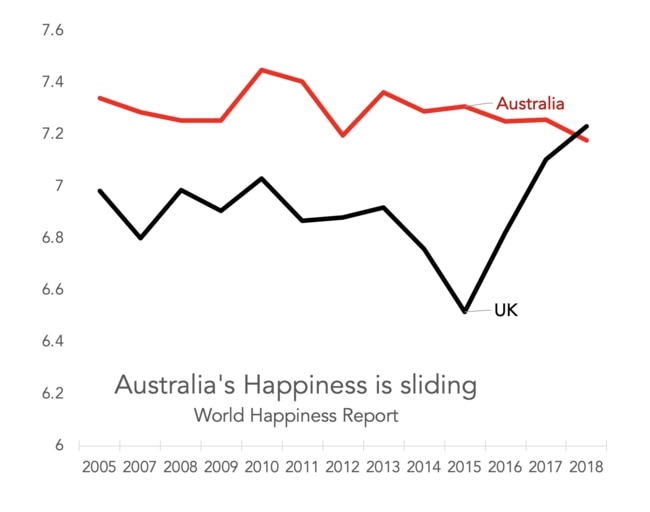
Australia will surely get through this recession and our economy will return to growth.
But the numbers above should make us pause. If growth is partly to do with population growth, and if we spend too much of that money making housing more expensive, it won’t necessarily translate to higher happiness for individuals.
We should be ready to do things differently next time – grow the economy smarter, not just faster.
Jason Murphy is an economist | @jasemurphy. He is the author of the book Incentivology.
Originally published as Australia recession: As our economy boomed, standards of living fell

